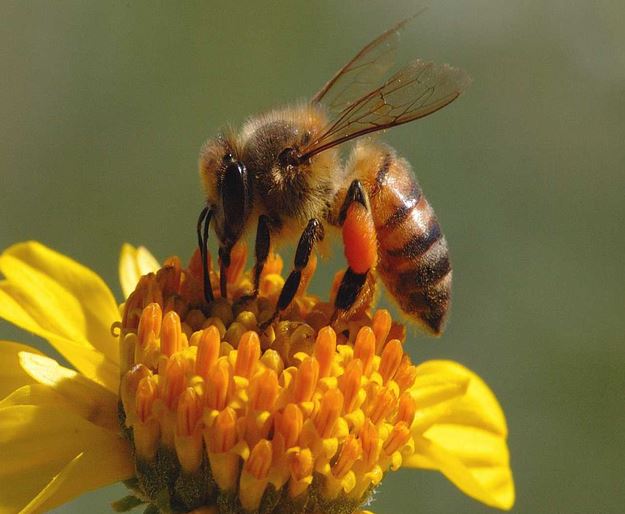Stress is causing young bees to go out and forage when they are too young, this is fueling Colony Collapse Disorder and is probably why the global bee population has plummeted over the past decade, say Australian, British and American scientists.
The study, carried out by a team from Queen Mary University in London (QMUL), Washington University in St. Louis, Macquarie University in Sydney, and the University of Sydney, has been published in Proceedings of the National Academy of Science.
CCD (Colony Collapse Disorder) occurs when there are no adult bees or dead bee bodies, but the queen and immature bees are still present. It is a serious threat to bee colonies worldwide and undermines their ability to perform human food crop pollination.

Declining world honey bee populations are probably due to juveniles going out to forage too early in life.
Farmers and researchers the world over are worried about the increasing problem of CCD. Until now, there was no clear evidence pointing to its cause.
Bees in stressed colonies start foraging too early
When a bee colony is stressed by disease, a shortage of food or some other factor that kills the older bees, the younger ones begin foraging at a younger age. Typically, a bee starts foraging when it is two or three weeks old.
Dr Clint Perry, from the School of Biological and Chemical Sciences at QMUL, and team attached radio trackers to thousands of bees and studied their movements until they died.
They found that when bees started foraging too early in life, they were much more likely to die during their first flights. Even those that managed to continue completed fewer foraging trips compared to the more mature bees.
The researchers gathered and analyzed the data from their study and tried to determine what the impact might be on honey bee colonies when they started foraging at a younger-than-normal age.
They found that stresses that resulted in chronic forager death of the mature bees tended to lead to an increasingly younger foraging population within the colony.
Foraging at a younger age accelerated colony decline
In colonies where a high proportion of younger bees were foraging, they died in larger numbers and foraging yields were much lower, which exacerbated the colony’s decline, similar to what has been witnessed worldwide in CCD cases.
Dr. Perry explained:
“Young bees leaving the hive early is likely to be an adaptive behavior to a reduction in the number of older foraging bees. But if the increased death rate continues for too long or the hive isn’t big enough to withstand it in the short term, this natural response could upset the societal balance of the colony and have catastrophic consequences.”
“Our results suggest that tracking when bees begin to forage may be a good indicator of the overall health of a hive. Our work sheds light on the reasons behind colony collapse and could help in the search for ways of preventing colony collapse.”
Bee populations vital for food security
One third of all the food we eat globally comes from crops that depend on pollinators like bees, according to a Yale e360 article.
Governments in Europe and North America are becoming increasingly alarmed at the threat to their nation’s food security posed by declining bee populations.
Reference: Clint J. Perry, Eirik Søvik, Mary R. Myerscough, and Andrew B. Barron. “Rapid behavioral maturation accelerates failure of stressed honey bee colonies.” Proceedings of the National Academy of Sciences. 9 February, 2015. DOI: 10.1073/pnas.1422089112.
NY Times Video – Colony Collapse Disorder
